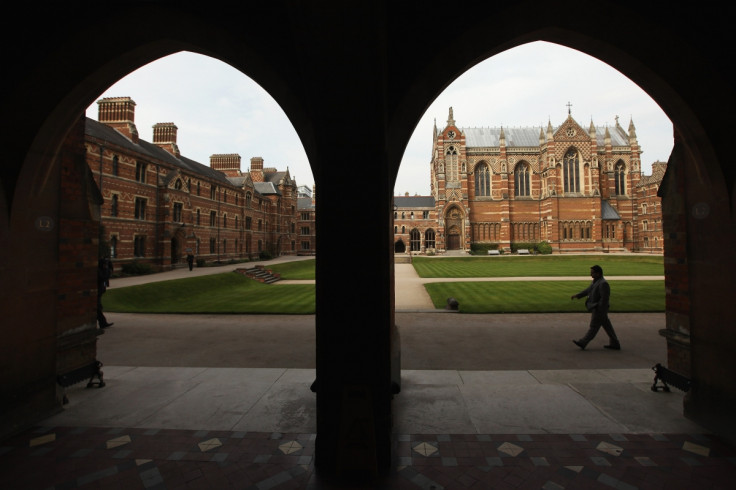Oxford and Cambridge under fire for excluding black students and only admitting 'posh' whites
Oxford made more offers to applicants from South East England than the whole of the North.

Oxford and Cambridge are accused of "social apartheid" after data showed they are still dominated by the sons and daughters of professionals from the south east, despite millions being spent to open up Britain's top two universities to less privileged students.
Around 80% of students accepted at Oxbridge in 2015 came from parents with top professional and managerial jobs. The data, obtained by a freedom of information request from Labour MP David Lammy, also shows a "shocking" regional bias of the intake of the two institutions.
"Oxford made more offers to applicants from five of the home counties – Surrey, Hampshire, Hertfordshire, Kent and Oxfordshire – than the whole of the north of England," said Lammy.
Digging deeper into the student intake in the south east, the data shows that "applicants from Fulham were four times more likely to get into Cambridge than their contemporaries living at the other end of the District Tube line in Barking."
Lammy, revealing his findings in the Guardian, said the drive to maintain academic standards is not an argument Oxbridge can hide behind.
"Over the course of four years (2011-14 inclusive), 851 students in Wigan got 3 As or better – so why did only 29 get offered a place to study at Oxbridge in that same period?"
According to the Guardian, the data shows that "10 out of 32 Oxford colleges did not award a place to a black British pupil with A-levels in 2015. Oriel College ... made just one offer to a black British A-level student in the same period. Similar data released by Cambridge revealed that six colleges there failed to admit any black British A-level students in the same year."
The MP for Tottenham, north London, said both universities received more than £800m of taxpayers money, with the public getting a poor return in terms of an open admissions policy.
"This is social apartheid and it is utterly unrepresentative of life in modern Britain," Lammy said.
By comparison in the US, "One in five Harvard students are from families with an income less than the national average and they pay nothing for their studies. Yale employs staff in every single state to connect with talented but hard-to-reach students who may lack the confidence or support networks to apply to the Ivy League."
Lammy, who is a former minister for higher education, said that Oxford and Cambridge "spent around £10m on outreach programmes but it was "clear that whatever they're doing isn't working".
He added: "It is right and proper that our top universities are elite. But for too long they have been allowed to be elitist as well, drawing up the ladder to success underneath them and reinforcing centuries of entrenched privilege."
A spokesman for Oxford told the Guardian that improving the problem would be "a long journey that requires huge, joined-up effort across society – including from leading universities like Oxford – to address serious inequalities".
A spokesman for Cambridge said: "The greatest barrier to participation at selective universities for students from disadvantaged backgrounds is low attainment at school. We assess the achievements of these students in their full context to ensure that students with great academic potential are identified."





















